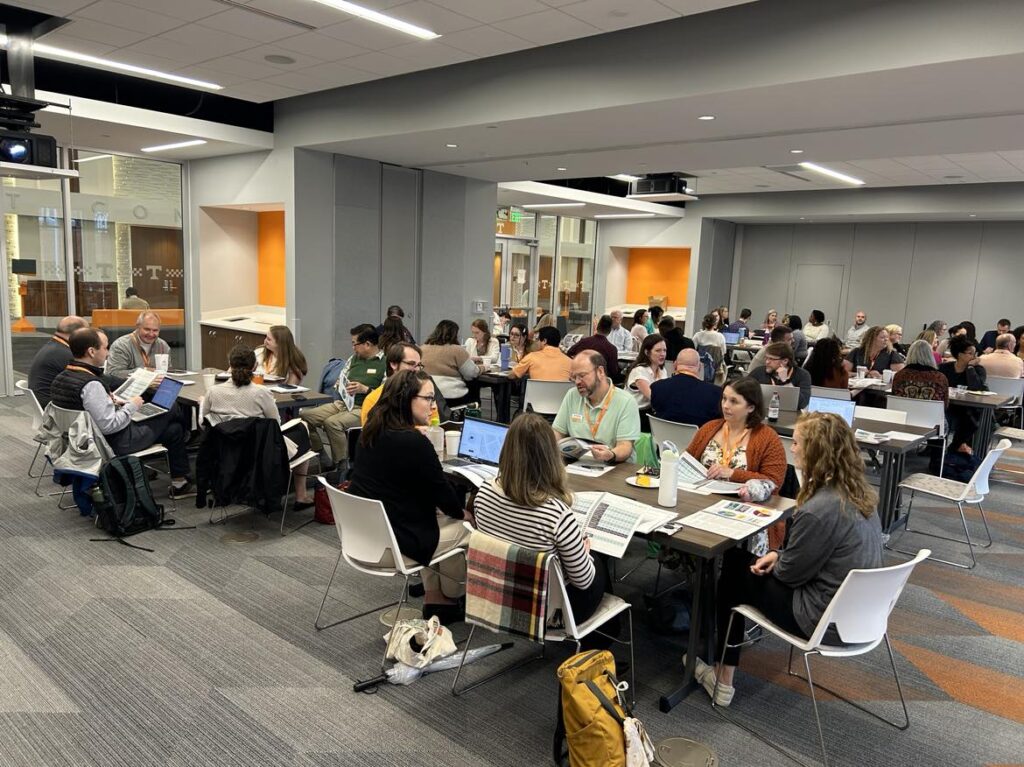
“The caliber of UT students stands out leaps and bounds above other institutions.”
– Ashlee Price, Pilot Company
The highest positive career outcome in history, the number one skill employers look for in a candidate, and how to give UT graduates an edge were all hot topics in the Third Annual Career Outcomes Summit.
The recent gathering, held in UT’s Student Union, allows for members of the Volunteer community to come together with local employers to discuss career outcomes data from recent graduates, career readiness in the classroom, and how to prepare Volunteers for the modern workforce.
“We have four years to prepare our scholars for 40 years in the workforce,” said Dr. Amber Williams, UT’s Vice Provost for Student Success. “We want every Volunteer to walk out into the world confident they have the skills to thrive.”
Record-Breaking Statistics
The showstopping number of the day was the 91.4% positive career outcome rate for the 2023 graduating class—the highest in UT history. Just five years ago, the positive career outcome rate was at 81%. Previously, career outcomes were analyzed using generated reports, but this year, members of the Center for Career Development & Academic Exploration (CCDAE) team customized the approach to create a more comprehensive and insightful report.
“We email students, go to post-graduation events, ask employers who they’ve hired, ask faculty for exit information, conduct calling campaigns, utilize institutional records and search LinkedIn,” said Stephanie Kit, CCDAE Executive Director. “We’re in a great job market, and I’m so excited to see Volunteers become successful in the workplace.”
Additional statistical highlights for 2023 graduates:
- Nearly 60% of graduates chose to stay in Tennessee to begin their careers.
- More than 1,600 unique organizations hired Volunteers.
- The median salary increased from $56,284 to $62,000 over the course of one year.
Articulation is Key
Employers are looking for the best and the brightest, but they also want problem solvers, good communicators and someone who can quickly adapt. While employers say many candidates may meet job requirements and look great on a resume, there is a gap in candidates being able to articulate what those skills mean to a potential employer.
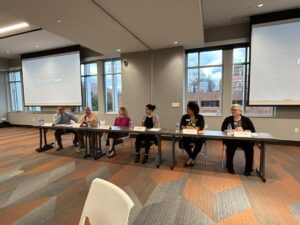
“Many applicants have technical skills, but being able to talk about them is so important,“ said Kristi Nguyen from 21st Mortgage. “Sometimes I get one-word answers. Doing the research beforehand, communicating well and feeling confident about what they can bring to the table, those are the soft skills we’re looking for.”
Sarah Yeaple from Knoxville Utilities Board says while internships and subject-specific knowledge matters, applicants must be able to articulate how that experience and knowledge translates to real-world applications.
“The ability to multitask and have adaptability to be on the pace of change is so important, but they must be able to show evidence of their ability to do that,” she said.
The employer panel also discussed emerging trends in the workplace, including the rise in the use of artificial intelligence. They also shared that a flexible work schedule has become one of the top priorities amongst new applicants.
“Everyone’s work/life balance is specific to the individual,” said Ashlee Price from Pilot Company. “Students want to know what that balance looks like for them so they can avoid the constant juggling of career responsibilities and personal life.”
The Vol Edge
The path from education to employment will look different for every scholar. But regardless of their preferred career industry, experts now agree academic success and career readiness should work hand-in-hand. Answers are not always found in books, and scholars need to learn that it’s ok to step outside the box—be creative, use critical thinking and to trust their own instincts.
To help further advance what that looks like for Volunteers, Krystyne Savarese, Assistant Vice Provost for Student Success, and Doug Porter, Associate Director for Strategic Initiatives, shared how a new program—The Vol Edge—will further enhance career readiness through more experiential learning while also promoting positive well-being. Simply put, the goal is to have graduates BE ready and FEEL ready for their next steps out of college.
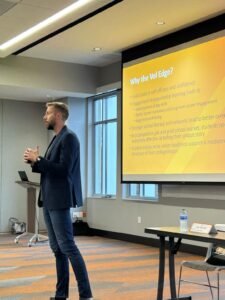
“We asked students to write the first three words that came to mind when it came to getting a job after college,” said Dr. Savarese. “Yes, we got feelings of excitement, determination, optimism—but we also saw words like anxious, uncertain, and nervous. Career outcomes matter, but so does their wellbeing on that journey.”
The Vol Edge—which will be rolled out in 2025 and fully operational in 2027—will offer a flexible array of learning and engagement activities to foster purposeful life and career readiness for scholars. Research shows that “high-impact educational practices,” such as study abroad, internships, and undergraduate research, provide transformative effects on a scholar’s personal development. The Vol Edge will help ensure every scholar—no matter their background or circumstance—has access to these intentional opportunities and can then apply what they’ve learned to their first jobs.
“It’s an exciting time to be at UT,” said Porter. “The university is making significant investments to ensure that UT graduates continue to stand out as some of the best prepared in the country. The Vol Edge will help make sure that all our scholars can graduate with confidence ready to tell their story and thrive in their lives and careers.”
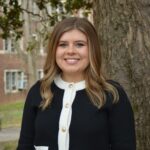 Summitt Wright, a junior majoring in agricultural economics and supply chain management, will interview with the
Summitt Wright, a junior majoring in agricultural economics and supply chain management, will interview with the  Grace Hardin, a junior in the College Scholars Program, believes in the power of community. Originally from Nashville, her family was impacted significantly both by the economic downturn of 2008 and the opioid epidemic. Her experiences motivated her to establish and lead a mental health organization at her high school in her junior year, not long before COVID struck. She credits the organization—which allowed students to talk about depression, anxiety, eating disorders, and recovery—with helping her take control of her own journey. That journey has now led her to the Truman Scholarship, which she learned about through a presentation in her College Scholars seminar.
Grace Hardin, a junior in the College Scholars Program, believes in the power of community. Originally from Nashville, her family was impacted significantly both by the economic downturn of 2008 and the opioid epidemic. Her experiences motivated her to establish and lead a mental health organization at her high school in her junior year, not long before COVID struck. She credits the organization—which allowed students to talk about depression, anxiety, eating disorders, and recovery—with helping her take control of her own journey. That journey has now led her to the Truman Scholarship, which she learned about through a presentation in her College Scholars seminar.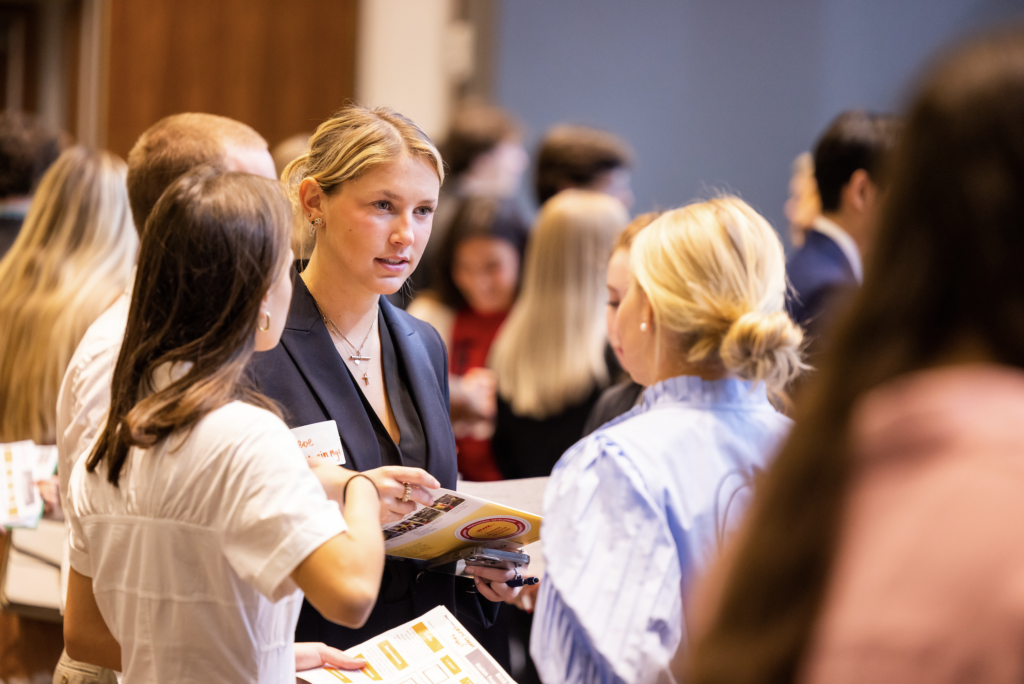
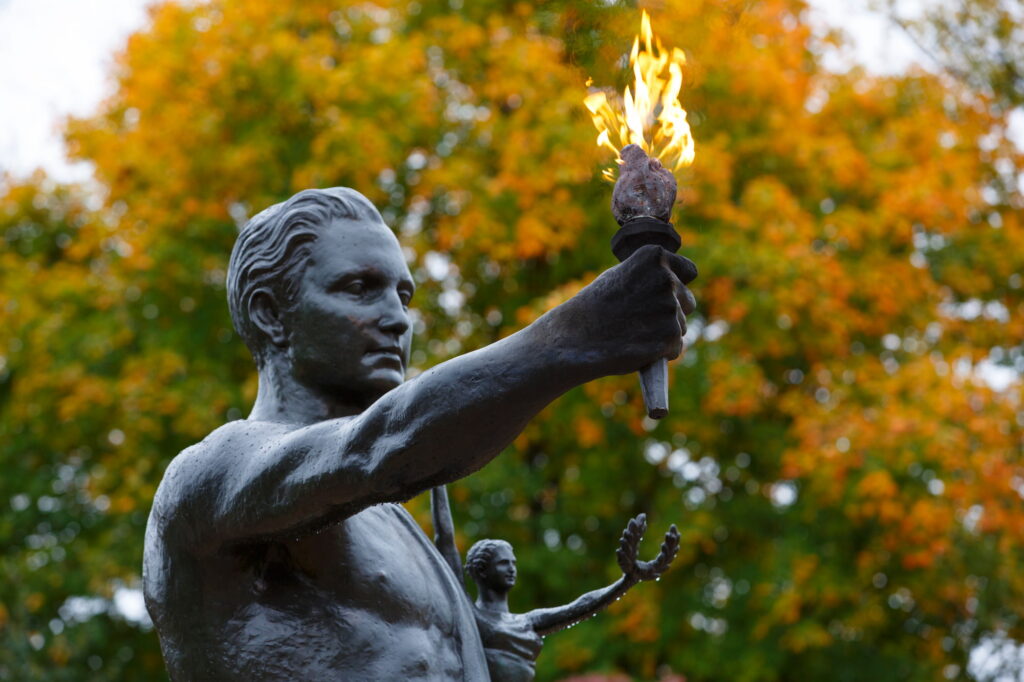
 Rachel Stewart, a 2022 Haslam Leadership Scholar and
Rachel Stewart, a 2022 Haslam Leadership Scholar and  Diba Seddighi, a 2022 grad, self-designed her degree, Global Health Equity, which examines issues of global health equity especially as they pertain to immigrant population, and minored in Spanish. A College Scholar, Diba is currently an NIH Post-Baccalaureate Fellow investigating sickle cell disease and equitable gene therapy. While a volunteer at Youth Hope, she developed strategies to address opioid use disorder in Knoxville. She also volunteered at Remote Area Medical, Centro Hispano, Bridge Refugee Services, and the Tennessee Immigrant and Refugee Rights Coalition. Diba plans to pursue a master’s degree in Global Public Health and then a medical degree. She hopes to work as a physician in a low-resource setting, delivering accessible care through a career with the National Association of Free and Charitable Clinics.
Diba Seddighi, a 2022 grad, self-designed her degree, Global Health Equity, which examines issues of global health equity especially as they pertain to immigrant population, and minored in Spanish. A College Scholar, Diba is currently an NIH Post-Baccalaureate Fellow investigating sickle cell disease and equitable gene therapy. While a volunteer at Youth Hope, she developed strategies to address opioid use disorder in Knoxville. She also volunteered at Remote Area Medical, Centro Hispano, Bridge Refugee Services, and the Tennessee Immigrant and Refugee Rights Coalition. Diba plans to pursue a master’s degree in Global Public Health and then a medical degree. She hopes to work as a physician in a low-resource setting, delivering accessible care through a career with the National Association of Free and Charitable Clinics. Jacob Alrock, majoring in voice and minoring in German studies, is a Haslam Leadership Scholar, president of VolOpera, and board member of Knoxville Opera. Jacob’s work demonstrates a commitment to
Jacob Alrock, majoring in voice and minoring in German studies, is a Haslam Leadership Scholar, president of VolOpera, and board member of Knoxville Opera. Jacob’s work demonstrates a commitment to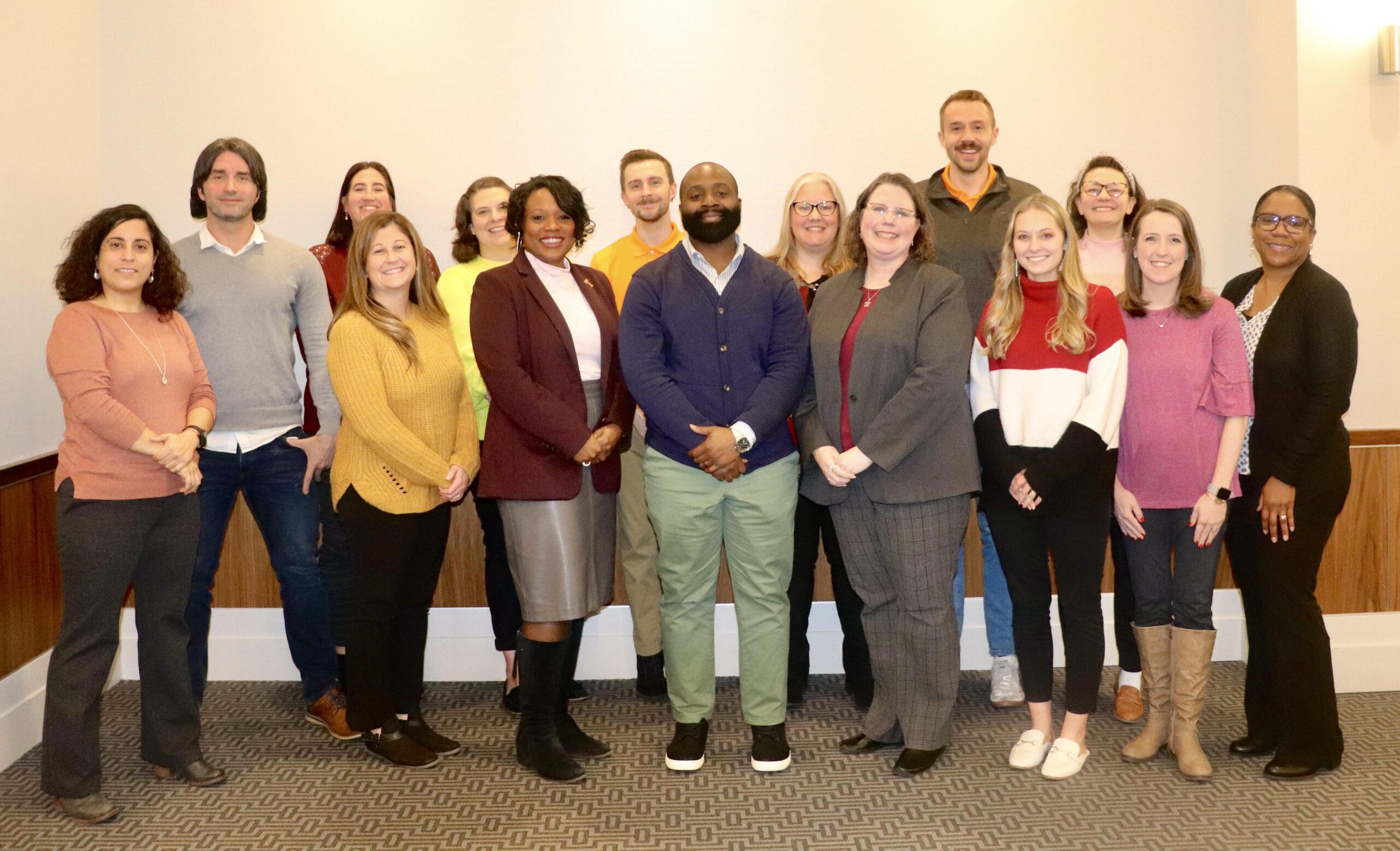
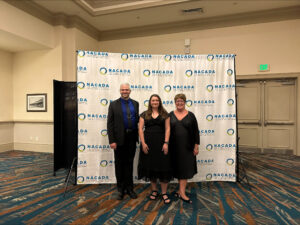
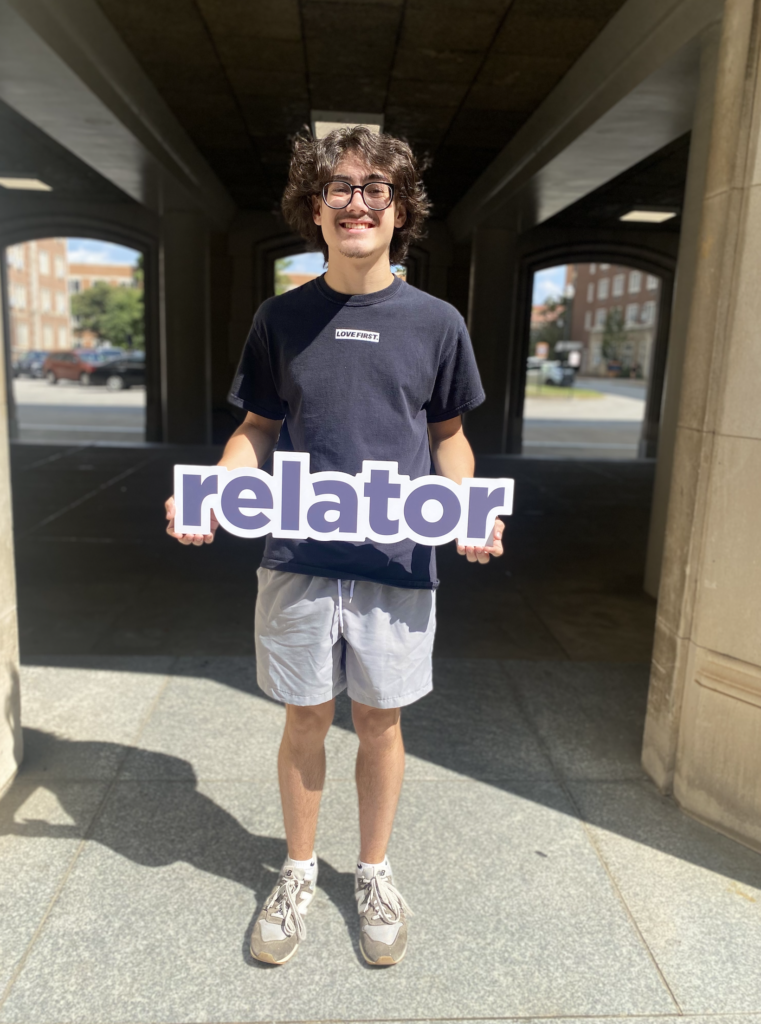
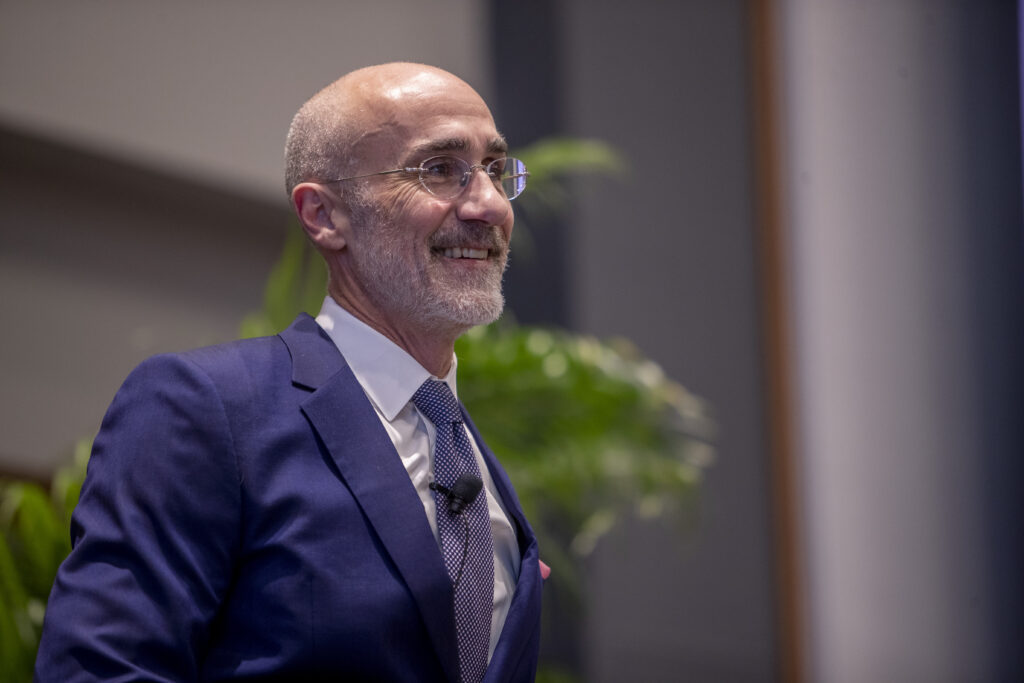
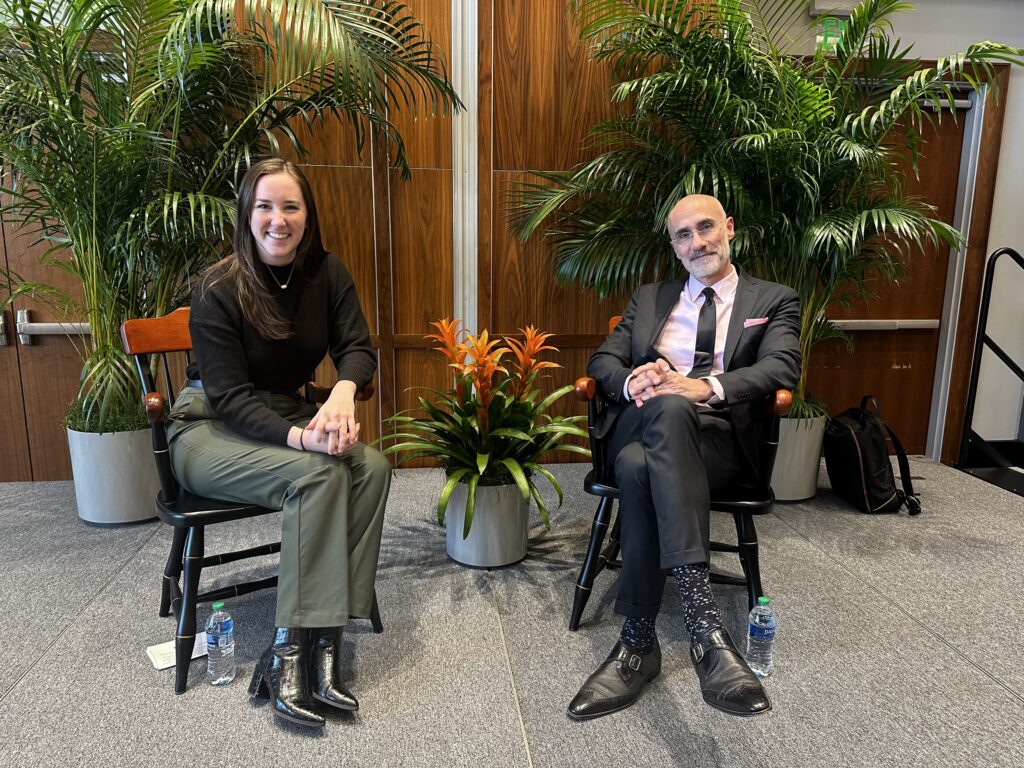 KNOXVILLE, Tenn. – Renowned speaker and author Arthur Brooks recently engaged with a captivated audience of First-Year students on Tuesday, Nov. 14 at the University of Tennessee, Knoxville campus, sharing insightful perspectives on happiness, leadership, and personal fulfillment.
KNOXVILLE, Tenn. – Renowned speaker and author Arthur Brooks recently engaged with a captivated audience of First-Year students on Tuesday, Nov. 14 at the University of Tennessee, Knoxville campus, sharing insightful perspectives on happiness, leadership, and personal fulfillment.